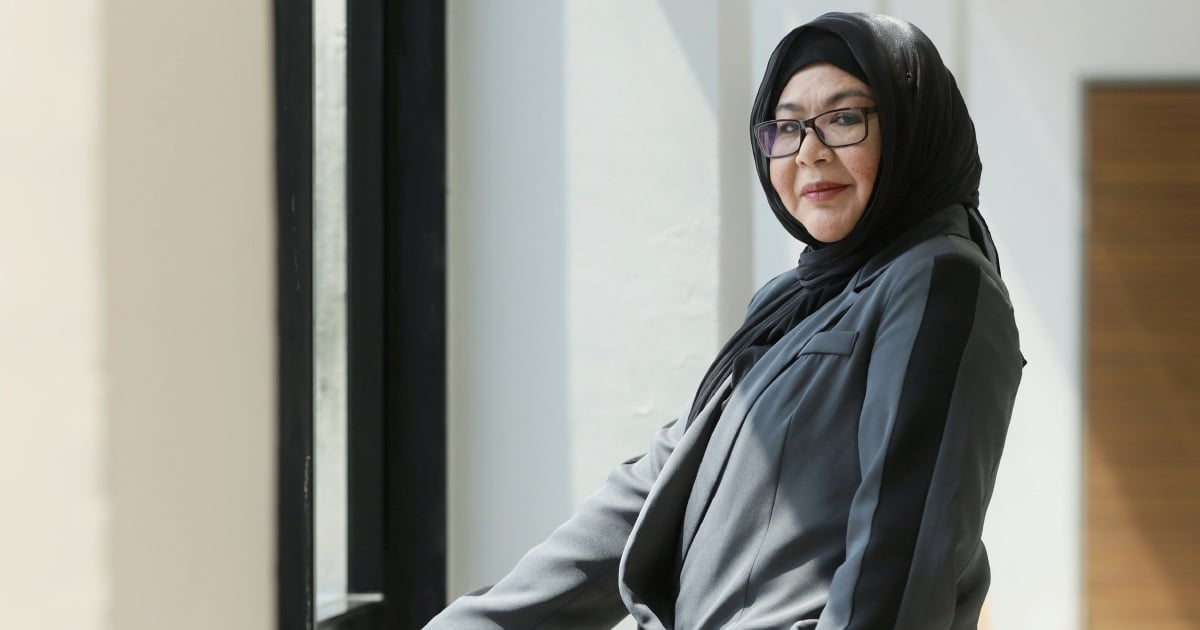KUALA LUMPUR: Continuing to adapt to the evolving and increasingly challenging creative industry landscape, director and producer Erma Fatima is set to launch an application called Karya Reels.
The app will allow local producers to broadcast their content, including dramas, on the TikTok platform.
Through this project, the producers will hold the absolute intellectual property (IP) rights to their work, a departure from the traditional model where TV stations retain ownership.
Erma’s bold initiative was inspired by the growing popularity of short drama series on TikTok.
She believes it will break the traditional TV industry model, which is often seen as biased against content producers.
Erma explained that the local drama production industry has long operated under the same model, where TV stations have full ownership of a work’s IP rights.
“These conditions will only harm drama producers in the long run,” she said.
“If this continues, the fate of local production companies will be the same as that of the great artist, the late Tan Sri P. Ramlee. We will die just like him, left with nothing, because all this time, the drama copyright becomes the property of the TV station after being sold.
“That is the purpose of introducing the Karya Reels app. I want to allow producers to create content while retaining the copyright,” said Erma, who spent nearly a year developing the app.
Erma noted that her inspiration for Karya Reels came from the success of short dramas produced in Hong Kong, China, India, and Hollywood, which have gained a large following on TikTok.
Unlike existing streaming platforms that use a monthly subscription model, Karya Reels will operate on a pay-per-view concept.
“Users will only need to pay for the drama they want to watch at a price as low as RM9.90. The drama will be available for two weeks,” she said.
With this new model, profits will be distributed more favourably to the creators.
“The producer will receive 70 per cent of the sales proceeds. I only take a 30 per cent commission,” she said, adding that the platform is open to all individuals, not just production company owners.
Erma also highlighted that Karya Reels gives producers the freedom to work without being bound by the strict conditions of TV stations or the Film Censorship Board (LPF).
“Producers can work without the pressure of chasing ratings. I want to tell stories that I believe need to be told to society. It’s no longer about chasing what people like. Instead, I want to produce work that gives me satisfaction and brings lessons to society,” she said.
Karya Reels will also allow producers to explore bolder or more sensitive themes and plots that might be difficult to get approved by conventional TV stations.
It will also feature a special channel called Kalbi, which will house 100 per cent syariah-compliant drama content to cater to a specific audience.
Erma admitted that introducing Karya Reels has not been easy.
“The biggest challenge is convincing producers to join the platform, especially since they are used to the older, ‘safer’ model. When I told other producers, they all said I was crazy. They asked who would buy a drama? Maybe it’s because we’re used to the culture of going to a TV station and only producing a work once they agree to buy it.
“With Karya Reels, we don’t have a contract that says I will pay them. They will only get paid when viewers buy their dramas,” she said.
Erma understands that many are not yet convinced by this new approach.
“So, for now, I don’t want to force any producer. I will start first and take the risk. To begin with, I’ll publish six dramas, including ‘Pondan Itu’ and ‘Ibu Haji’. We’ll see how it goes,” she said.
Despite being created for TikTok, Erma clarified that the scriptwriting techniques are the same as those used for TV dramas.
She also plans to expand Karya Reels’ reach to Singapore, Indonesia, and Brunei, with a content strategy tailored for viewers in those countries.
“If this effort is successful, this project will open up great opportunities for drama producers.
They will no longer have to rely on TV stations.
This is my contribution so that producers can hold the rights to their works.
However, even if I fail, I’m confident I can still sell the dramas to a TV station in the future,” she said optimistically.
© New Straits Times Press (M) Bhd






